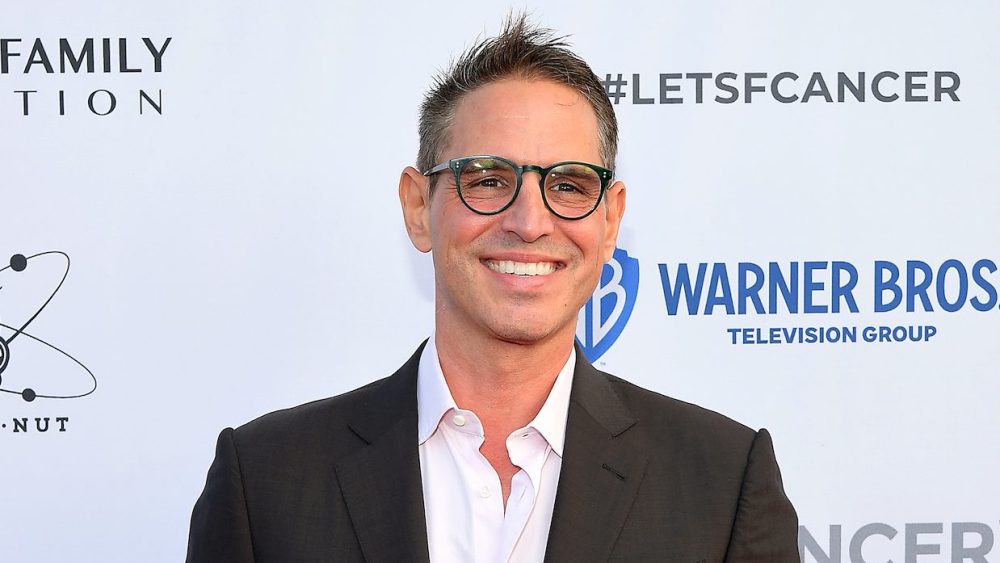Greg Berlanti accepted the inaugural Greg Berlanti Social Impact Award at the UCLA Center for Scholars and Storytellers‘ annual Teens and Screens Summit on Thursday in Los Angeles. The writer, director, producer and showrunner behind movies and shows such as “Love, Simon,” “Dawsons Creek,” “Riverdale,” “You” and multiple series in the CW’s “Arrowverse” delivered a heartfelt acceptance speech reflecting on his journey towards self-acceptance, which led him to create shows that help audiences feel represented, seen, and loved.
“As storytellers in Hollywood, we get to heal our own old stories, crafting new ones that are honest and vulnerable, and those stories, in turn, can change hearts and minds and remind the audience how much more universal human experience is than different,” a dewy-eyed Berlanti explained, “We all still want to connect. We all still want to be seen and understood. We all want love.”
Berlanti shared some of those “old stories” that he’s had the opportunity to heal and expand upon throughout his illustrious career. He started with his own childhood, reminiscing about his boyish love for television while also realizing “there was still a great void. I was a closeted gay teenager, and there were only a smattering of LGBTQ characters on TV.”
He reflected on how a haphazard encounter with an AIDS march in New York City gave him his first positive representation of queer people, but when one of the marchers reached out a hand to him, he rejected it. “He waited for me to take it, but I didn’t. I didn’t have the courage. I feared my parents or someone would figure out my secret if I took that hand, so I just looked away,” he said, “I spent much of my youth running from that out-stretched hand, first afraid, but then, over time, finding the strength to come out and ultimately come to love myself.”
The event came full circle decades later, when Berlanti screened “Love, Simon” in Olathe, Kansas in 2018. After the screening, a 14-year-old boy came out publicly and thanked Berlanti for providing him with shows and movies that allowed him to feel a little less alone. “As he reached out his hand to shake mine,” Berlanti recalled, “It wasn’t lost on me that I was getting a second shot to make up for the hand that I didn’t take so many years before.”
Berlanti’s writing partners Julie Plec and Kevin Williamson introduced the award and its namesake. “When you work with Greg, you cry a lot, and that’s not by accident. There’s always big, heartfelt emotion at the center of Greg’s work, because that’s what Greg is,” Williamson said, with Plec adding, “He’s given us some of the most heartfelt, diverse, ambitious storytelling and television, whether it’s a superhero in a cave, a teenager falling in love for the first time, or a family finding its way, his shows don’t just entertain us. They see us.”
Molly Ringwald, who starred in “Riverdale,” also sent in a video comparing Berlanti to John Hughes. She said that her iconic YA collaborations with Hughes from the 1980s have “stood the test of time, but they are also of their time,” adding “Greg Berlanti has built upon this legacy, shaping our modern portrayals of adolescence in much the same way, but with more representation of our diverse society.”
The ceremony’s focus on Berlanti’s contributions to the YA space was a fitting emphasis for the Summit, which comes in the wake of the Center for Scholars and Storytellers’ annual Teens and Screens report. The report provides insight into the media tastes and consumption habits of Gen-Z Americans. Among the findings were that young Americans still value traditional movies and television, though it is oftten consumed in small bites on TikTok and YouTube, they have a notable preference for animation, don’t care for over-sexualized love stories and crave content that offers authentic representations of lives like their own.
The summit unpacked these findings across multiple panels and discussions featuring media executives, content creators and academics. The most memorable panel may have been the “Ask The Teens” panel, where four teenagers took the stage for a conversation about their tastes, moderated by Roblox Youth Engagement Program Manager Andres Cuervo. The young panelists affirmed much of what the study suggested, expanding upon teens’ aversion to “trend chasing” media that feels artificial and out of touch in lieu of more earnest storytelling. As 14-year-old Hollyn Alpert said, “Teens, like adults, aren’t monoliths. They all have different opinions. They all have different views, beliefs, races, sexualities, religions. Just explore that and embrace that.” A room full of seasoned Hollywood professionals listened intently.
Berlanti summed up the importance of heeding these young voices, saying, “What a gift it is to make a positive influence on the young lives of audiences by reminding them of these things and to give them a sense of belonging and empathy and self worth. In return, they give us hope. Young people are the ones I get my greatest sense of hope from these days. No matter how dark things seem today or as rocky as the journey to our future may end up being, I believe that the future will be brighter because of our young people.”

